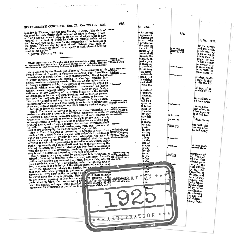Transnational litigation is litigation involving persons, events, or transactions with a connection to more than one country. In the United States, transnational litigation may occur in state or federal court. The term encompasses ordinary commercial disputes between parties in different nations, multi-jurisdictional patent wars, and claims based on international human rights law. Transnational litigation cases raise a host of unique issues relating to procedural rules, private contracts, federal statutes, state law, and international treaties.
The Jurisdictional Battle Over Which Court Will Adjudicate the Trump Tariff Challenges
Last week, two courts enjoined the Trump administration tariffs that Trump purported to promulgate by executive order pursuant to the International Emergency Economic Powers Act (IEEPA). In a May 28 ruling in V.O.S. Selections Inc. v. U.S., the Court of International Trade (CIT) issued a permanent injunction against the government defendants, and in a May…
Continue ReadingOne Century of Arbitration in the United States: Call for Papers
To celebrate the one hundredth anniversary of the Federal Arbitration Act, Transnational Dispute Management(TDM) is publishing a special issue, “One Century of Arbitration in the United States: The Federal Arbitration Act at Home and Abroad,” edited by Professor Björn Arp and Professor Kiran Nasir Gore. Proposals may be submitted to info@transnational-dispute-management.com and will be reviewed…
Continue ReadingSecond Circuit Finds Provision of New York Convention Self-Executing
The Constitution’s Supremacy Clause states that “all Treaties made, or which shall be made, under the Authority of the United States, shall be the supreme Law of the Land,” but the U.S. Supreme Court has long distinguished between self-executing and non-self-executing treaties. Self-executing treaty provisions are effective as federal law without implementing legislation. Non-self-executing treaty…
Continue Reading

